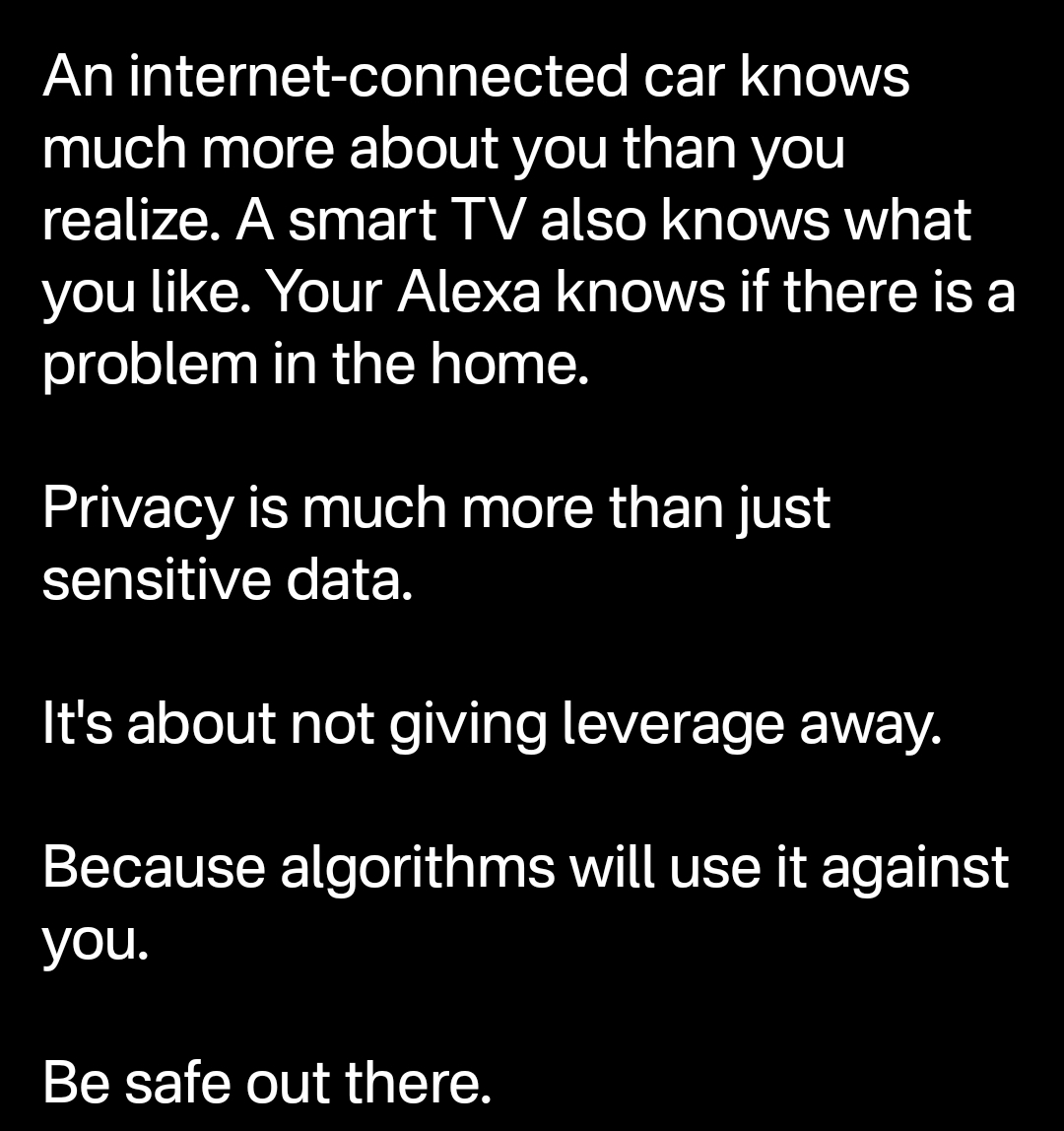
post text
Picture this:
- You type on Google “laptop won’t turn on”
- Google now knows you have a broken laptop and can estimate how desperate you are to fix it.
- Because it knows how desperate you are, it can increase shop prices proportionally.
You are going to pay the maximum they get you to pay.
That’s algorithmic pricing.
The more companies know about you, the more they can predict and sell how desperate you are to other stores out there.
An internet-connected car knows much more about you than you realize. A smart TV also knows what you like. Your Alexa knows if there is a problem in the home.
Privacy is much more than just sensitive data.
It’s about not giving leverage away.
Because algorithms will use it against you.
Be safe out there.

By the logic of this meme, pizza shops should raise the price of pizza for me because I proved I wanted pizza by walking in the door. It’s an idiotic way to do business, and isn’t happening the way this meme presents.
Again, that’s literally what airlines and some hotels do. Based on how often you frequent the site and how often you search for flights for a specific date and location, they will change their prices for you specifically. The more interest you show and the closer it gets to that date, the higher the prices go. And your local pizza shop does this on a broad scale. They base their prices on demand - the more people willing to come in, the more they can raise their prices until they hit the threshold of what people are willing to pay.
This is literally just taking targeted ads and applying it to pricing. A cross section of different values can identify you as an individual based on things like browsing habits and web searches, and companies can use that digital fingerprint to tailor online prices for you the same way that the airlines do. Even at a broad scale, they can tailor prices based on your income level, hobbies, and predicted price tolerance. Hell, with this concept they could even run fake sales at an individual level instead of site-wide like Amazon does during their Prime Day “sales.”
This is one of the more irrational fears/predictions about the dynamic pricing infrastructure grocery stores want to implement - that they’ll start tailoring prices on things that you buy frequently or try to get you to buy extra with prices that look like a good deal. But it’s a lot more practical to do online than in a physical store.